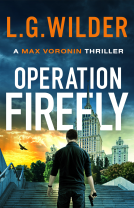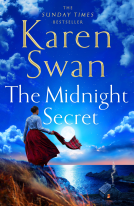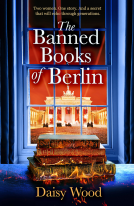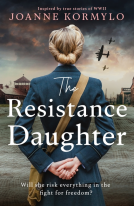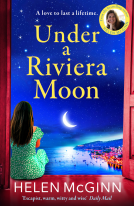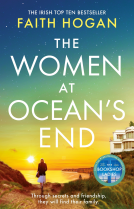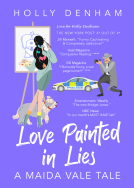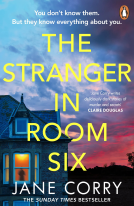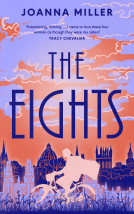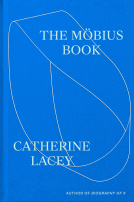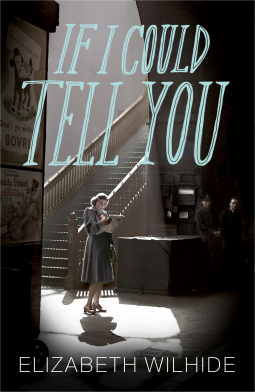
If I Could Tell You
by Elizabeth Wilhide
This title was previously available on NetGalley and is now archived.
Send NetGalley books directly to your Kindle or Kindle app
1
To read on a Kindle or Kindle app, please add kindle@netgalley.com as an approved email address to receive files in your Amazon account. Click here for step-by-step instructions.
2
Also find your Kindle email address within your Amazon account, and enter it here.
Pub Date Feb 04 2016 | Archive Date Feb 04 2016
Penguin Books (UK) | Fig Tree
Description
Available Editions
| EDITION | Hardcover |
| ISBN | 9780241209592 |
| PRICE | CA$27.99 (CAD) |
Featured Reviews
 Susan H, Reviewer
Susan H, Reviewer
What an amazing journey into the past. I opened this book and found myself in a time where morality was paramount and a sense of duty and honour to serve King and Country, in every possible way, was your duty. Elizabeth Wilhide has captured the era perfectly. The vivid descriptions of a pre-war 1939 Britain followed by the blitz were so authentic and the contrast between rural Britain and London very dramatic. As the countryside and small coastal towns filled with children from the cities, the cities filled with rubble from the endless bombings. It was also a time when marriage was meant to be for life and divorce was frowned upon, especially if a third party was involved. Julia Crompton, at 32, had always been a faithful wife and devoted mother to her son, until she saw Dougie. He was irresistible but it lead to devastating consequences for her. Julia was destined to lose more than her reputation. This is a brilliant story that kept me awake until I finished the whole book. This story is shocking, sad and heartbreaking at times. I would recommend this book for anyone that likes a truly realistic feel for the past. It certainly ticked all the boxes for me. I wish to thank Netgalley and Penguin Books for allowing me to read and review this book.
Another 1940s read - but one that is very different in tone. Julia Compton is the terribly proper wife and mother, her husband highly-respectable and her home well-ordered. Her only child, a son, is clean and healthy, with appropriate school-boy concerns. Essentially, she's Celia Johnson. But then one day in 1939, a film crew comes to shoot a documentary about the local fishing industry and Julia meets Dougie Birdsall, the crew's director. And it all goes a bit topsy-turvy. This is Brief Encounter without the stiff upper lip or the cups of tea. From the very beginning, a prologue set in 1944 warns us that this is all going to end in tears. I was impressed by this though, If I Could Tell You may be chick-lit, but if so it is of the highest quality.
I have mentioned on more than one occasion how I feel about adultery narratives - not a fan. Still, somehow I did find myself drawn into Julia's situation and although I winced at her actions, particularly since her husband was clearly a decent man, I never really felt moved to judge her. It's kind of like a Diary of a Provincial Lady gone a bit wrong. Julia has all of the accouterments of middle-class life but finds herself still dissatisfied. From the beginning, her encounters with Dougie crackle with sexual tension, with Dougie's film crew eyeing them blearily from the side-lines, knowing where all of this will end up. Even during their separations, Dougie bombards Julia with letters full of desire.
I felt that Wilhilde captured the period perfectly - having read a good deal around this era, the atmosphere of Blitz-torn London was incredibly evocative. I was reminded of The Love Charm of Bombs, the account of various writers' experience of living through the conflict in the capital. The Blitz really does seem to have loosened many people's inhibitions, for after all, what is the point of sticking to the rules if at any point one may find oneself on the wrong side of an air raid? Thrown out by her husband, Julia finds herself in the midst of a group of Bohemian artists, writers and film producers - a long way from where she began.
It was interesting too to see the archaic 1940s divorce laws play out - when I was studying 1940s fiction, I remember reading an explanation of the legislation using Brief Encounter as a case study. Julia is cast out from polite society, unable to see her child, only allowed to write to him via her husband and battling to even be allowed visitation given her status as adulteress. It is the details such as the 'collusion' - that if a cuckolded husband slept with his wife having found out about her adultery, he would be 'colluding with her' and less likely to be granted a divorce. Whenever people argue that we don't need feminism, we need to remember how far we have come.
This is not a novel about a woman being shamed or villified for her 'offence', but Julia's new life does quickly become very difficult. She has no idea of how to cook, having always had a cook to instruct instead. She cannot clean, wash clothes - she has no skills other than piano-playing and a pleasant speaking voice. Dougie has not the same means as her husband Richard and it is easy to sigh and consider that Julia has made her bed and now must lie in it - Dougie bursts out laughing the first time that Julia asks which day his cleaning woman visits. I was reminded of Emma Carter, the loose woman of The Archers who left her husband with a well-paid job for his unemployed brother who had no qualifications and then proceeded to belly-ache for years about being 'punished' by poverty for leaving her husband. It is not a punishment for a choice, but it is a consequence and complaining invites very little sympathy. But that is perhaps my Grandma speaking.
I felt that If I Could Tell You was a book for the true 1940s enthusiast - Dougie is involved in the making of a film 'They Also Serve', a clear nod to In Which We Serve, which really did star Celia Johnson. Netta, the housewife who provides shelter to Dougie and Julia from the Blitz, is feted in a local magazine for her recipe which involves 'an inventive use of carrots'. Even her name evokes associations with the well-known wartime diarist Nella Last and Netta does keep diaries for her children.
This is no Anna Karenina, although a reference is made to that during the course of the novel. The passion between Dougie and Julia is not enough to survive the privations of wartime - there is a horrible claustrophobia to Julia's dependency on this unreliable man, but unlike the Victorian era, there is more scope for her to seek independence and also - thankfully - some responsibility. Julia may lament her victimhood and all that she has lost, but another steely-eyed character tells her quietly that she will find this all a great deal easier to survive if she acknowledges her own part in it. On some level she had not been enjoying her marriage.
There are many grim moments to If I Could Tell You, but perhaps the most surprising thing about this novel about a woman choosing heart over head is that the defining relationship is in fact the one she has with herself, and of course her child. Young Peter is apparently stuck in boarding-school 'for the duration' of the war but this is not enough to protect him from the repercussions of his parents' divorce. It is his reaction which most attracted my sympathy and indeed my interest - there were interesting echoes to in the way that it was his maternal grandfather's stern British values which helped Peter to recover.
There was much to enjoy here - despite scaling the highs and lows of passionate romance, it feels like a far more considered look at familial breakdown in the 1940s. Elizabeth Wilhilde tells Julia's story without judgment and gives us a compelling glimpse into a world which mixed people who would never have met before and who were drawn into situations which they would never have expected. Julia is captured on camera for wartime propaganda but her true self is far more complex than simply the girl keeping the home fire burning - If I Could Tell You gives the lie to wartime propaganda and illustrates what was for many a confusing and difficult time, where death could strike without warning. We first meet Julia as a woman on the brink, in a dangerous place and in a worrying state of mind. There were many women in the 1940s who would have recognised her situation, unsettled by the conflict and finding themselves adrift in society. Julia often feels like a woman who is not being heard - discontented (and no less so having left her husband), she is a heroine who despite her faults, I found myself supporting. Highly readable and very thought-provoking, I found this a hard book to put down - a very humane look at a traumatic time in our history.
